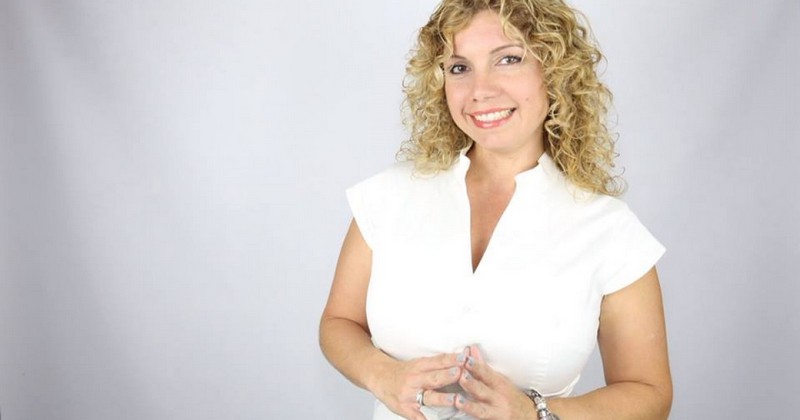Boschetti: "Coaching helps to unleash the client’s full talent".

We present an interview with Lydia Boschetti in which she talks about her profession, coaching.
Psychology and Mind: Very good morning Lydia, delighted to greet you and to ask you some questions about interesting issues of your work as a coach. Tell us some details about your academic and professional background.
L.B.: Hello! I currently have a Bachelor's degree in Business Administration from the Interamerican University of Puerto Rico and a Master's degree in Professional Mental Health Counseling from the University of Phoenix, being licensed by the Puerto Rico Department of Health.
Interview with Lydia Boschetti
What does coaching consist of?
A coach is a professional who accompanies a "coachee" (client) in a process of self-discovery so that he/she can seek solutions and strategies to resolve his/her conflicts or achieve his/her goals. The coachee is responsible for his actions and develops his own strategy according to his "world map" and his needs. The coach does not give solutions, the coach uses questions so that the coachee can discover the answers that are inside him and identify resources that he will use to reach his goal. The coachee is the expert in his life, that is why he is the one who develops this action plan together with his coach.
What are the benefits of coaching for the client who requests this type of service?
Through coaching, the client can reach his goals much easier and faster than trying it alone, since the coach is trained to use techniques that serve to release all those talents and resources that the client has inside.
Coaching has no official regulation so anyone can be a coach. How can we differentiate a professional coach? what competencies or skills does a good coach need to have?
It is true, coaching is not regulated, however there are many organizations that certify people who wish to become coaches. This is a profession that is based on a great moral value. Continuing education, commitment to excellence and passion for your work are indispensable elements in the qualities that a coach must have. He/she must develop excellent communication skills, empathy, unconditional acceptance and a positive attitude, seeing his/her clients with possibilities and being committed to the process generating harmony and affinity. The coach must be in harmony with his inner self, knowing that he will be working with people who need an emotionally stable and self-motivated professional.
What set of techniques do you usually apply to each client? Are there different techniques depending on the client's specific concerns?
Yes, there are multiple techniques to use depending on each case and each client. For example, I work with neuro-linguistic programming and use visualization, Ericksonian hypnosis, questions, kinesiology, identify beliefs, metamodels and confront them, use the Milton model, anchors, NLP presuppositions, among other powerful techniques.
What advice would you give to someone who is starting out in the world of coaching?
To educate themselves with certified professionals, belong to associations related to coaching and become professionals who will put the name and reputation of coaching on high by having an insatiable desire for education and excellence.
Another of your specialties, as you have been saying, is NLP. Tell us, what are the fundamental pillars of Neuro-Linguistic Programming?
NLP has four fundamental pillars: rapport or RapportSensory Awareness, Thinking for Results and Behavioral Flexibility.
The Rapport is that good relationship that we develop with other people and with ourselves. This good relationship implies trust, understanding, security and respect. It is part of the skills that a good coach must master.
Sensory awareness is the ability to perceive, through the senses, the information that is being sent through verbal and non-verbal language. These are sensory perceptions that must be decoded and interpreted correctly.
To think in results is to execute all our actions taking into account the final product. For this it is necessary to define where we want to get to, and then, develop a route, an action plan that will take us to that final product in the most efficient and effective way possible, in the shortest time.
Behavioral flexibility can be summarized as follows: You want different results? You must do different things... Through behavioral flexibility we have the freedom to do things in different ways until we get the desired result. As NLP says, failure does not exist, what exist are results.
NLP is becoming very fashionable, why do you think it is becoming so popular?
Because NLP is a powerful technique for obtaining short-term results. In addition, it brings together techniques from other disciplines, which makes it a complete and varied technique.
Finally, lately we have seen that you dedicate part of your time to record videos for YouTube in which you talk about different experiences. When and why did you have the idea of recording videos?
I have been recording videos for more than ten years. Thanks to YouTube and Facebook I have been able to reach more and more people. I understand that this medium is one that is easy, powerful and accessible to many. It is an excellent way to be able to express thoughts and messages verbally and non-verbally. This way people watching and listening can better understand the concepts and can save them for future reference. I love what I do, I understand that it is part of the purpose I have in this life and the result and the responses from people fills me with a lot of satisfaction.
(Updated at Apr 13 / 2024)